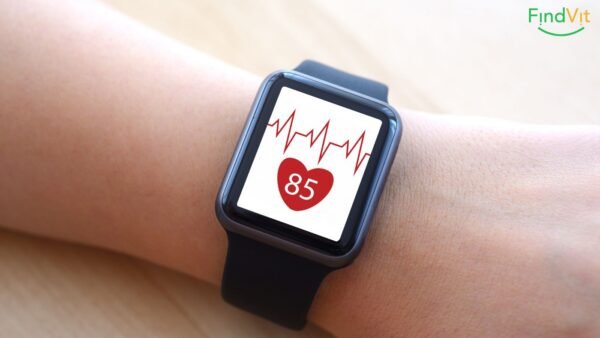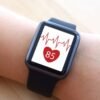What are B vitamins?
The vitamin B complex consists of eight B group vitamins:
- B1 (thiamine)
- B2 (riboflavin)
- B3 (niacin)
- B5 (pantothenic acid)
- B6 (pyridoxine)
- B7 (Biotin)
- B9 (folic acid)
- B12 (cobalamin)
Each of these essential vitamins contributes to the optimal functioning of the body. Read on to learn more about how these nutrients work, how much you need, whether you should be taking supplements, and more.
What are the health benefits of B vitamins?
B vitamins play a vital role in maintaining good health and well-being. B vitamins have a direct effect on energy levels, brain function and cell metabolism.
Vitamin B complex can help prevent infections and help support or promote:
- cell health
- the growth of red blood cells
- energy level
- vision
- brain function
- digestion
- appetite
- proper nerve function
- hormone and cholesterol production
- cardiovascular health
- muscle tone
Group B for expectant mothers
B vitamins are especially important for pregnant or breastfeeding women. These vitamins help the development of the fetal brain and reduce the risk of birth defects.
B vitamins can help people manage energy levels and ease nausea.
To increase testosterone
Testosterone levels in men naturally decline with age. B vitamins are sometimes included in "testosterone boosting" supplements and are believed to increase testosterone levels in men. However, human studies to support these claims are lacking.
Despite the lack of evidence for any testosterone-enhancing effects, B vitamins are beneficial in hormone regulation. B vitamins can help regulate male hormones and female hormones.
How much vitamin B is needed?
The recommended daily amount of each B vitamin is different:
According to institute, the recommended daily allowance for women is:
- B1: 1.1 milligrams (mg)
- B2: 1.1 mg
- B3: 14 mg
- B5: 5 mg
- B6: 1.3 mg
- Biotin: 30 micrograms (mcg)
- Folic acid: 400 mcg DFE
- B12: 2.4 mcg
For men, the institute recommends the following daily rate:
- B1: 1.2 mg
- B2: 1.3 mg
- B3: 16 mg
- B5: 5 mg
- B6: 1.3 mg
- Biotin: 30 mcg
- Folic acid: 400 mcg DFE
- B12: 2.4 mcg
Older people and pregnant women may need higher amounts of B vitamins. A healthcare professional can provide dosage information tailored to individual needs.
Certain medical conditions may prevent the body from properly absorbing vitamin B.
You should also talk to a specialist about vitamin B intake if you have:
- celiac disease
- HIV
- Crohn's disease
- craving for alcohol
- kidney disease
- rheumatoid arthritis
- ulcerative colitis
- inflammatory bowel disease
What foods contain B vitamins?
Many foods contain B vitamins, so you can get enough from your daily diet. It is best to get B vitamins from a variety of food sources. This helps ensure you get enough of each type.
Vitamin B has:
- milk
- cheese
- eggs
- liver and kidneys
- meats such as chicken and red meat
- fish such as tuna, mackerel and salmon;
- shellfish such as oysters and clams
- dark green vegetables such as spinach and kale
- vegetables such as beets, avocados and potatoes
- whole grains and cereals
- beans such as beans, kidney beans, black beans and chickpeas
- nuts and seeds
- fruits such as citrus fruits, bananas and watermelon
- soy products such as soy milk
- wheat germ
- yeast and nutritional yeast
How to find out if you are deficient in vitamin B
Most people get enough B vitamins from a balanced diet. However, B-group vitamin deficiency is still common. You may be deficient in vitamins, especially if you have been taking certain medications for a while, or if you follow a very strict vegan or vegetarian diet.
The following symptoms may indicate that you are not getting enough B vitamins:
- skin rashes
- cracks around the mouth
- scaly skin on lips
- swollen tongue
- fatigue
- weakness
- anemia
- irritability or depression
- nausea
- abdominal cramps
- diarrhea
- constipation
- numbness or tingling in the feet and hands
If you're experiencing any of these symptoms and aren't sure why, make an appointment to talk to a health professional.
While you may be experiencing a B vitamin deficiency, these symptoms also overlap with many other health conditions.
Can deficiency increase risk?
A B vitamin deficiency can cause a variety of symptoms, depending on which B vitamins are lacking.
If vitamin B deficiency is not addressed, there may be an increased risk of:
- anemia
- digestive problems
- skin conditions
- Infections
- peripheral neuropathies
Vitamin B12 deficiency in particular may increase the risk of neuropsychiatric disorders. Scientists are also investigating its role in hyperhomocysteinemia and atherosclerosis.
Babies born to individuals who were deprived during pregnancy folic acid, may be more likely to have certain birth defects.1
Are supplements needed?
Most people get enough B vitamins from their diet. Healthy food is also the best way for the body to absorb these vitamins.
Supplementation is not necessary if you are not experiencing deficiency symptoms.
You may be more likely to need a Group B supplement if:
- you are 50 years of age or older;
- you are pregnant
- you have certain chronic medical conditions,
- you are taking certain long-term medicines
- you follow a vegetarian or vegan diet
One thing to keep in mind: It's important to only buy from a reliable, reputable brand. This helps ensure that you are consuming a high quality product without any questionable additives.
If a health professional has noticed symptoms of a deficiency, he or she may recommend a specific manufacturer.
You should always read all labels carefully and follow all manufacturer's instructions. If you have questions about the dosage, talk to your doctor.
Supplements recommended by specialists and reliable manufacturers can be found in the section:
What happens if you take too much vitamin B
It is unlikely that you will get too much vitamin B from your daily diet. This is because B vitamins are water soluble. This means that they are not stored in the body and are excreted daily with urine.
It's also unlikely that you'll get too much B vitamin if you take quality supplements according to the amount on the label.
Also, as with most supplements, it's possible to take too much vitamin B at one time—especially if you don't follow the recommendations of a health professional or the information on the label.
Several different B vitamins can have specific side effects if taken in excess. For example:
- Vitamin B6. Too much B6 can cause peripheral neuropathy, which is a loss of sensation in the hands and feet.
- Folic acid. Too much of this vitamin can mask the symptoms of vitamin B12 deficiency, which can eventually lead to damage to the nervous system.
- Niacin. Too much niacin can cause skin flushing. Long-term overdose can cause liver damage.
There isn't enough research to say exactly what happens if you take too many B vitamins.
Talk to a counselor about supplements
It's always a good idea to talk to a counselor before taking supplements.
A desired health goal can be discussed and possible right solutions can be discovered.
Some supplements may interact with certain underlying conditions and medications, so it's important to be aware of this.
It's important
It is important to rememberthat everyone's health is individual and there is no common recipe for everyone!
So, if you want to know what nutrients your body might be lacking right now, health professionals recommend a guide – "Your Day".
- In time, pay attention to the signals sent by your well-being
- Replenish the body with natural minerals, vitamins and nutrients necessary for health.
- Enjoy energy and good mood everyday!











